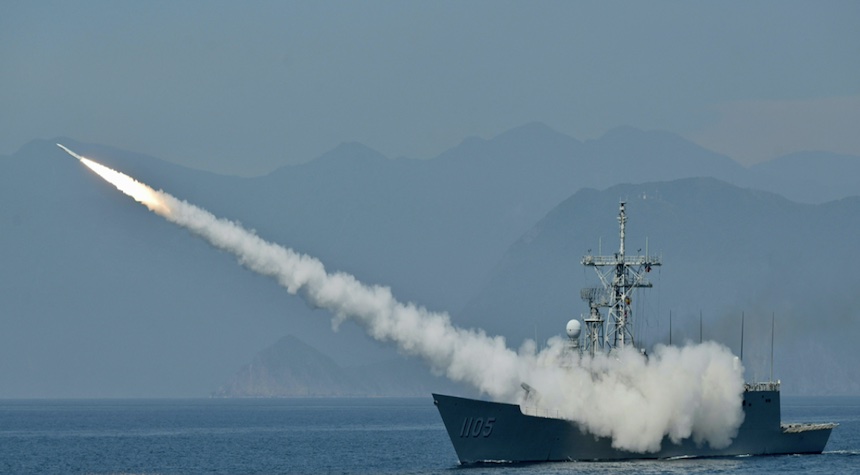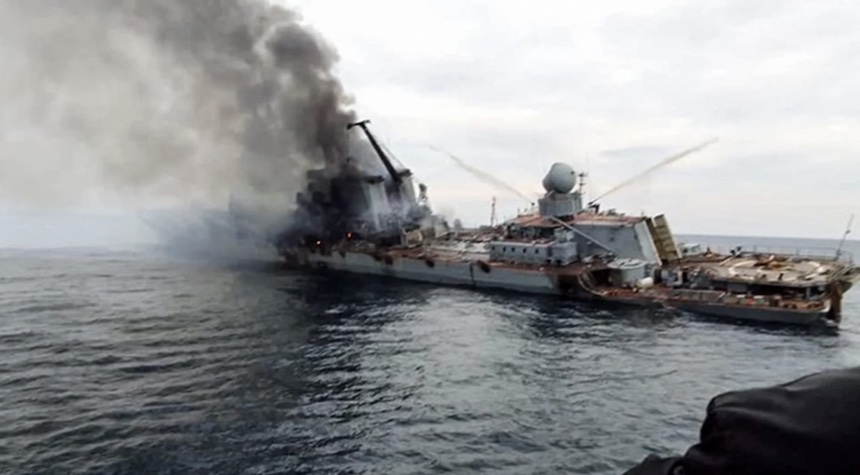On Sunday, the Ukrainian Armed Forces launched a strike against the Black Sea Fleet port at Sevastopol (in occupied Crimea). The attack, which was carried out by Storm Shadow cruise missiles or SCALP-EG cruise missiles, destroyed or damaged two additional landing ships of the Russian Navy’s Ropucha class.
Ropucha Landing Ships are critical for the Russian Forces in Occupied Crimea, and Occupied Kherson. The railway that connects Russia with Crimea through the Kerch Strait Bridge is limited due to damages. The Black Sea Fleet of Russia began the war with thirteen ships. Three of these ships are currently operational. Four ships are being repaired, while six others have either been sunk by Ukrainian attacks or seriously damaged. At least 20 Russian Navy vessels, or a third of the Black Sea Fleet are combat losses for a country without a functioning navy.
The Russian Fleet scored its first victory since the early days of Putin’s War in Ukraine. It’s not a success, per se, but it is a significant accomplishment.

According to reports, the Baltic Sea Fleet of Moscow accidentally sank a Russian trawler during training exercises with a missile.
A video of the alleged event posted on social media depicts a navy and red-painted fishing vessel with its hull in flames.
A relative of one of those killed told TV Rain, an independently-run Russian TV channel, that three people had been killed and four injured in the strike.
According to reports, the incident occurred on 19 March when the Baltic Sea Fleet was participating in war drills in Kaliningrad and launched a missile that hit Captain Lobanov a Russian fishing boat.
The exercise was conducted in waters that were fairly congested near Kaliningrad. In normal circumstances, a Notice to Mariners would have prevented the trawler from entering a live-fire exercise impact zone. It may have been the case, but I could not find any evidence. This could have been the Russian commander, assuming that “big ocean, small missile” was the case and letting the missile fly.


